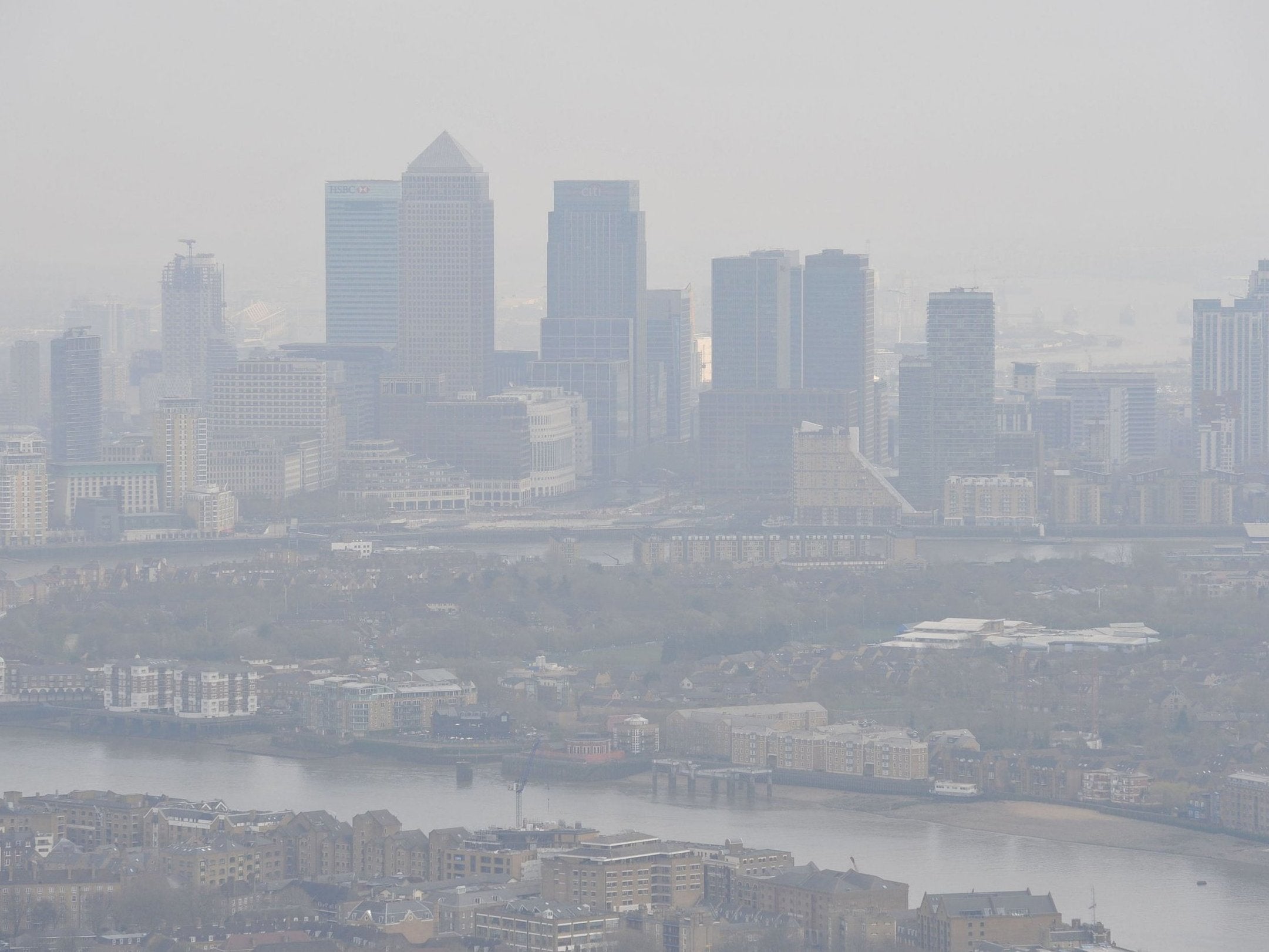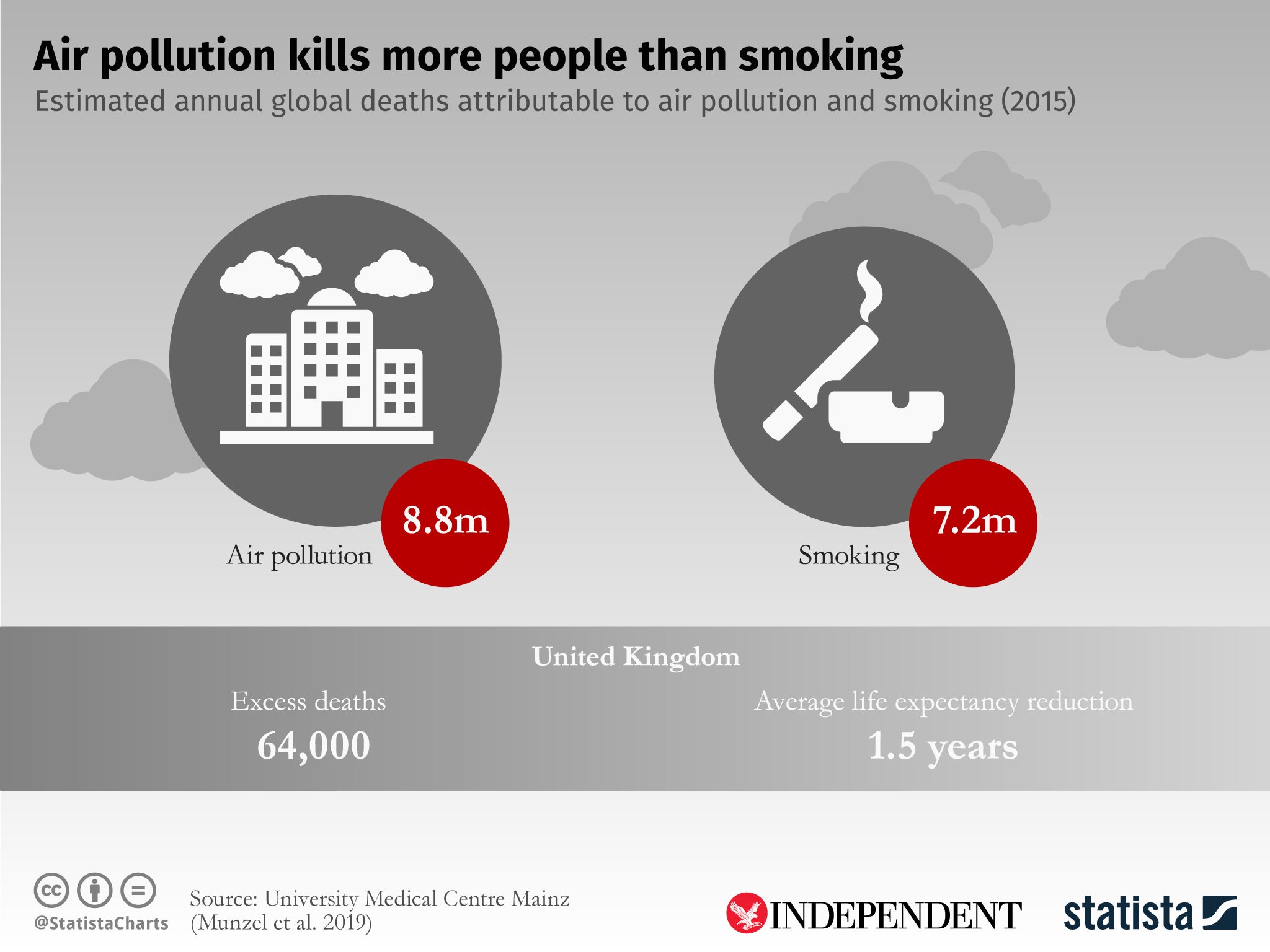Air pollution responsible for more deaths than smoking, study says
‘EU lagging a long way behind’ in tackling toxic air, say researchers as study shows pollution deaths double previous estimates

Your support helps us to tell the story
From reproductive rights to climate change to Big Tech, The Independent is on the ground when the story is developing. Whether it's investigating the financials of Elon Musk's pro-Trump PAC or producing our latest documentary, 'The A Word', which shines a light on the American women fighting for reproductive rights, we know how important it is to parse out the facts from the messaging.
At such a critical moment in US history, we need reporters on the ground. Your donation allows us to keep sending journalists to speak to both sides of the story.
The Independent is trusted by Americans across the entire political spectrum. And unlike many other quality news outlets, we choose not to lock Americans out of our reporting and analysis with paywalls. We believe quality journalism should be available to everyone, paid for by those who can afford it.
Your support makes all the difference.The number of people dying as a result of air pollution may exceed the number killed by smoking, a major new study suggests.
German researchers estimate that as many as 8.8 million deaths per year globally can be attributed to dirty air.
In Europe alone they estimate there are more than 790,000 additional deaths as a result – double the previous estimate, which did not properly account for the additional rates of cardiovascular disease.
“To put this into perspective, this means that air pollution causes more extra deaths a year than tobacco smoking, which the World Health Organisation (WHO) estimates was responsible for an extra 7.2 million deaths in 2015,” said Professor Thomas Munzel, one of the authors from the University Medical Centre Mainz . “Smoking is avoidable but air pollution is not,” he added.
Fine sooty particles and nitrogen oxides pumped out by car exhausts, factories and power plants can form a damaging cocktail which significantly increase rates of heart attacks, strokes and severe asthma attacks.
Regulators are looking to crack down on diesel cars in major cities as they are major producers of microscopic “PM2.5” particulates. These can contain heavy metals and other fuel chemicals which lodge in the lungs and enter the bloodstream.
The study, published in the European Heart Journal, used computer simulations of interacting natural and man-made chemicals combined with new information about population density, disease risk factors, and causes of death.

Air pollution was thought to have caused 64,000 deaths in the UK in 2015, including 17,000 fatal cases of heart and artery disease.
More than 29,000 other British deaths linked to air pollution were due to a range of conditions such as cancer, diabetes and chronic lung disease.
This amounted to a reduction in average life expectancy of about 1.5 years in the UK; however; some of their European neighbours are much harder hit.
Co-author Professor Jos Lelieveld, from the Max-Planck Institute for Chemistry in Mainz, said: “The high number of extra deaths caused by air pollution in Europe is explained by the combination of poor air quality and dense population, which leads to exposure that is among the highest in the world.”
In Germany, air pollution was said to have been responsible for an extra 124,000 deaths in 2015 and 2.4 years of lost life expectancy. An estimated 81,000 people were killed by air pollution in Italy.
The academics called on the European Union to adopt tougher safety limits for PM2.5s set by the WHO, as current air pollution levels in Europe are double the safe level set by the health body.
“Many other countries, such as Canada, the US and Australia, use the WHO guideline,” said Professor Munzel. “The EU is lagging a long way behind in this respect.”
Additional reporting by PA
Join our commenting forum
Join thought-provoking conversations, follow other Independent readers and see their replies
Comments